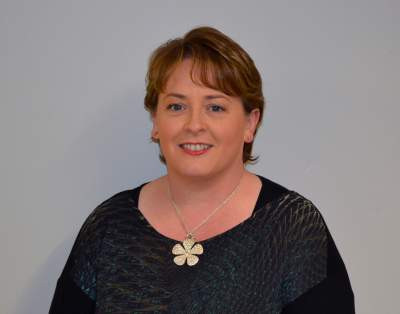Package summary
Notes
Courses in package
Autism, Learning Style, and the Impact of Visual Teaching Methods
Event summary
Date
Start Time
End Time
St. Anthony's Special School, Castlebar, Mayo
Booking closes
Autism, Learning Style, and the Impact of Visual Teaching Methods
Visual strategies are widely used when working and living with autistic children and young people, as they:
• Complement the learning style of many autistic children, young people and adults
• Can be introduced alongside other intervention strategies.
• Are adaptable, portable and can be used in most situations.
The use of visual strategies can have a notable impact on how an autistic child experiences family, community, and school life, as they help to clarify expectations and make abstract concepts more concrete. Visual strategies support children as they develop effective communication, appropriate social interaction, and positive behaviour skills, as well as accessing the curriculum.
This session will cover why visual teaching methods work. Professionals and parents will become more familiar with how their input will reflect a sound evidence base and be more able to adapt the school or home environment and individualised tasks to meet the needs of the child, in order, to enhance learning, play or leisure skills and social interactions.
Expected Outcomes
• Understand the importance of visual teaching methods.
• Understand how visuals will improve the learning of the child and his or her experiences
• Develop some visual strategies that can be used to support the child
• Why visuals work for autistic children.
• Using visuals in school or the family home
• How to develop visuals and implement visual strategies.
Notes
Location
St. Anthony's Special School
Get Directions
Majella Nugent
Autism and Communication
Event summary
Date
Start Time
End Time
St. Anthony's Special School, Castlebar, Mayo
Booking closes
Autism and Communication for students with additional Severe Learning Difficulties For autistic children and young people with learning difficulties, the difficulties relating to communication can often be magnified. Many autistic children and young people have significant difficulties with speaking, language, and communication. This session will examine why students experience difficulty not only with communication but also the motivation to communicate thus impinging on them becoming socially active partners. Understanding communication is as difficult as using language to express needs, wants or offer commentary. Autistic students are more likely to be successful communicators in environments that are designed to encourage and support their efforts. For the student to initiate effective communication, two conditions should be met. 1. The student must see a reason to communicate, the Why. This is encouraged by using motivating materials and activities combined with creating situations in which he or she must communicate to make something happen. 2. The student must have a means to communicate, the How. The student may need to be taught the communicative behaviour needed, and visual supports for such communication will need to be available. Participants will: Understand the various modes of communication used by students with learning difficulties. Recognise that visual supports, as tools of communication with and for students, are critically important. Understand the need to differentiate the visual support to meet specific needs in definite areas thus helping the student to understand you and develop his or her expressive means. Understand how to use engagement as the starting point for communication. Recognise various forms of communication and use of a variety of communicative tools. Gain ideas for making meaningful communications with the student, even those who are largely non-verbal. Look at the importance of motivation to learning and life. Gain practical strategies and ideas for maximising the students motivation to learn and participate in social life. Course Overview A look at verbal and non-verbal methods of communication. Looking at novel approaches to communication such as intensive interaction and using technology to promote communication. What is motivation and why is it important? How do we motivate autistic students with learning difficulties? Ideas for promoting greater engagement and motivation to participate in the wider social world.
Notes
Location
St. Anthony's Special School
Get Directions
Frances O'Neill
Autism and Anxiety for those with additional learning difficulties
Event summary
Date
Start Time
End Time
St. Anthony's Special School, Castlebar, Mayo
Booking closes
Autism and Anxiety for those with additional learning difficulties
For many autistic students, school can be a major source of stress. Everyone shows their anxiety in individual ways, so the most reliable observations that a student is anxious are going to be made by the people who know the student best. This shows the importance of working closely not only within the family structure, but also with the school staff.
This session is an introduction to strategies that can be used to alleviate the experience of anxiety in autistic students. This will include an introduction to cognitively based strategies and how to develop student centred strategies to deal with anxiety.
Participants will:
• Understand how anxiety can escalate and may result in an emotional response
• Develop some simple strategies to prevent the escalation of anxiety.
• Understand the basics of cognitively based management approaches.
Course Overview
• Anxiety triggers and build up.
• “On the spot” anxiety management strategies.
• Developing a “stress kit.”
• Cognitively based approaches and the emotional toolkit.
Notes
Location
St. Anthony's Special School
Get Directions
Frances Stewart
Autism and Sensory Processing
Event summary
Date
Start Time
End Time
St. Anthony's Special School, Castlebar, Mayo
Booking closes
Autism and Anxiety for those with additional learning difficulties
For many autistic students, school can be a major source of stress. Everyone shows their anxiety in individual ways, so the most reliable observations that a student is anxious are going to be made by the people who know the student best. This shows the importance of working closely not only within the family structure, but also with the school staff.
This session is an introduction to strategies that can be used to alleviate the experience of anxiety in autistic students. This will include an introduction to cognitively based strategies and how to develop student centred strategies to deal with anxiety.
Participants will:
• Understand how anxiety can escalate and may result in an emotional response
• Develop some simple strategies to prevent the escalation of anxiety.
• Understand the basics of cognitively based management approaches.
Course Overview
• Anxiety triggers and build up.
• “On the spot” anxiety management strategies.
• Developing a “stress kit.”
• Cognitively based approaches and the emotional toolkit.
Notes
Location
St. Anthony's Special School
Get Directions
